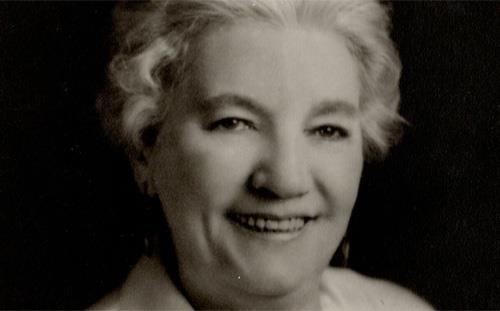
If you measure the great American writers to some degree by the durability of their work, you can't leave out Laura Ingalls Wilder.
The impact of Wilder's work, notably the Little House on the Prairie series, needs no confirmation but gets some anyway in the PBS American Masters series, which premieres Laura Ingalls Wilder: Prairie to Page at 9 p.m. ET Tuesday (check local listings).
Directed by Mary McDonagh Murphy, who previously profiled Harper Lee for American Masters, Laura Ingalls Wilder recounts the real-life history that Wilder dramatized for her children's books, including the eight-volume Little House series.
Murphy builds her story around the fact that tens of millions of American children over multiple generations have read Wilder's books. Combined with the popular television series adaptation that ran for most of the 1970s and early 1980s, this embeds Wilder's work into not just American literature but the American language.
Murphy talks about this breadth with scholars, biographers, and actors from the TV series. Melissa Gilbert, who played the young Wilder, is among many who rhapsodize over the timelessness of the stories and the way they retain a lifelong resonance for people who read them as children.
Gilbert and others acknowledge that the TV show took dramatic license with the material, making the stories more sentimental and idealized than many of the real-life experiences on which they were based.
In fact, this American Masters notes, Wilder had already done some of that same sort of tidying up herself.
Her father, the beloved Pa, was portrayed in her books as a man who suffered hardships but always paid his debts. The real Charles Ingalls, while a decent and honorable fellow, once loaded the family into a stagecoach and hightailed it out of town under cover of darkness because his debts had become insurmountable.
As Ingalls scholars have noted for years, the core of the Ingalls family experiences largely transpired as Wilder recounted them. She softened some of the edges.
Her original intent in writing A Pioneer Girl, a long essay that seeded what would become the Little House series and her other books, was to reflect on how the lives of her family mirrored the monumental changes that had come over America from her birth in 1867 to the early 1930s when she began her memoir-based writing.
That seemingly simple premise, Laura Ingalls Wilder suggests, enabled her to tell a sweeping story through a very personal narration.
Murphy does not sidestep at least one almost inevitable consequence of growing up in the frontier territory of the Upper Midwest.
European Americans like the Ingalls family moved into that region at the expense, sometimes illegally, of the Native Americans who had lived there for centuries. This created conflicts and spawned what gradually came to be recognized as racist attitudes.
Wilder's books do not revolve around these attitudes, but they surface in occasional lines like, "There were no people there, only Indians."
Another passage describes Pa Ingalls putting on blackface and singing a racist minstrel song. This passage was partly removed in later editions of the book. They still reflect attitudes, widely accepted at the time, that now are seen as part of America's poison legacy of racial bias. Wilder herself would later apologize for the "no people" line, calling it a "stupid mistake."
None of the commentators in Murphy's documentary suggests discarding the books. At least one suggests that they should be "taught in context."
The program also acknowledges the role of Wilder's daughter Rose in the Little House series. Rose, herself an accomplished writer, prodded her mother and seemed to have had a hand in some of the actual composition, though both mother and daughter denied any such alliance.
A few historical adjustments aside, Laura Ingalls Wilder comes off well in this American Masters. She was past 60 when she had her great simple idea, and she parlayed it into stories that have captivated and inspired young readers for more than 80 years.
Her stories recount tragedy and hardship, yet they are gentle stories, full of the hopeful message that the sun will rise in the morning, and that change is not an ending.
Little house, big story.